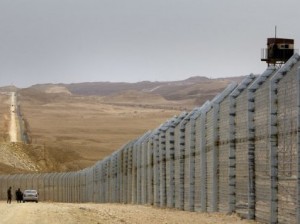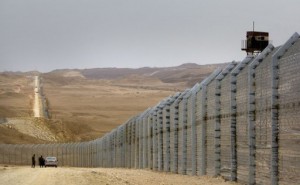
(AFP File Photo)
Saudi Arabia, the United Arab Emirates (UAE), and Bahrain agreed to restore full diplomatic ties with Qatar in a meeting held in Riyadh on Sunday, marking the start of a “new page” in the relations between Gulf countries, according to a joint statement released by the three governments.
The statement said the agreement aims to serve the unity of the Gulf Cooperation Council (GCC) countries and to promote the “interests” of its members.
Saudi Arabia, the UAE, and Bahrain decided to reinstate their ambassadors to Qatar as part of the agreement.
The meeting in Riyadh included Bahraini King Sheikh Hamad bin Isa Al-Khalifah, Emirati Prime Minister Sheikh Mohammed bin Rashid Al-Maktoum, and the Emir of Qatar Sheikh Tamim bin Hamad Al Thani.
Mohamed Ezz Al-Arab, an analyst at the Al-Ahram Center for Political and Strategic Studies, said there is little information about what happened behind closed doors in the meeting, describing the latest round of talks as exceptional.
On 5 March, the three countries recalled their ambassadors to Qatar in a signal of a worsening divide in the Gulf. They announced the decision in a joint statement, saying they had to take the steps “that they see appropriate to protect their security and stability”.
Ezz Al-Arab said that he believes that there may be several factors that led the three gulf countries to reinstate their ambassadors, including the threat caused by the increasing brutality of extremist group Islamic State of Iraq and Al-Sham (ISIS), which is starting to threaten “some Gulf parties or the entire Gulf entity”.
Ezz Al-Arab believes that the latest meeting could be an effort to “put Gulf differences aside in order to cooperate on facing a common threat”.
The joint statement described the agreement as joint action that will lead to a strong and “coherent” Gulf entity in the midst of the critical circumstances and which require the multiplication of efforts to protect security and stability.
Ezz Al-Arab believes that another factor could be a possible shift in Qatari policy to no longer offer shelter or financial support to the Muslim Brotherhood.
Saudi Arabia, the UAE, and Bahrain on one hand, and Qatar on the other, have been at opposite ends of the political spectrum in regards to the ousting of Muslim Brotherhood-affiliated former president Mohamed Morsi in July 2013. The UAE and Saudi Arabia pledged billions of dollars in financial aid to Egypt over the past year and a half to support its ailing economy.
Just days after the toppling of Morsi, the UAE announced the provision of a $3bn aid package to Egypt, comprised of a $1bn grant and a $2bn interest-free deposit at the Central Bank of Egypt. Saudi Arabia later pledged $5bn to Egypt in the form of grants, deposits, and petroleum products.
Qatar meanwhile had a rocky relationship with the interim authorities that replaced Morsi. The gas-rich monarchy was a strong backer of the Morsi’s administration and condemned last year’s military takeover.
However, Qatar decided in September to expel seven Muslim Brotherhood members who had earlier fled Egypt to Qatar.
These members are among many Brotherhood leaders who fled Egypt during the past year and a half, in an attempt to evade the crackdown on the Brotherhood which followed Morsi’s ouster.








